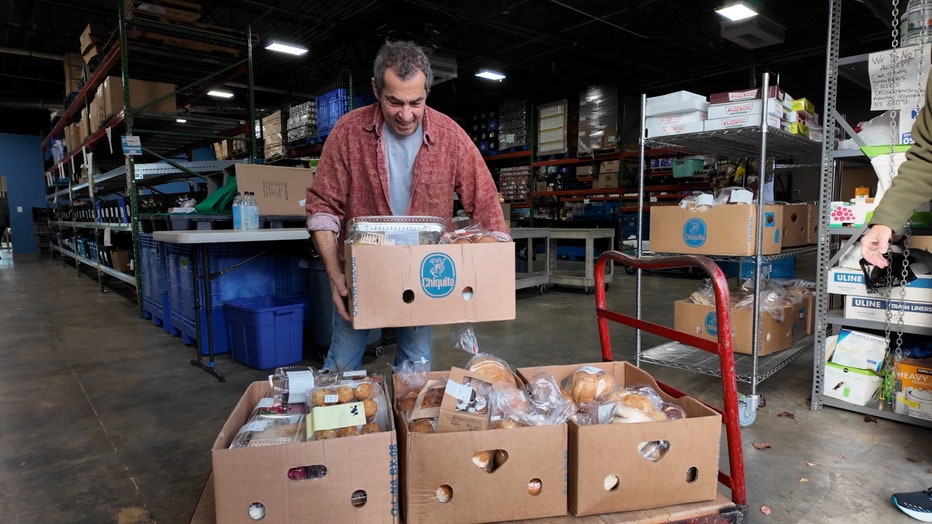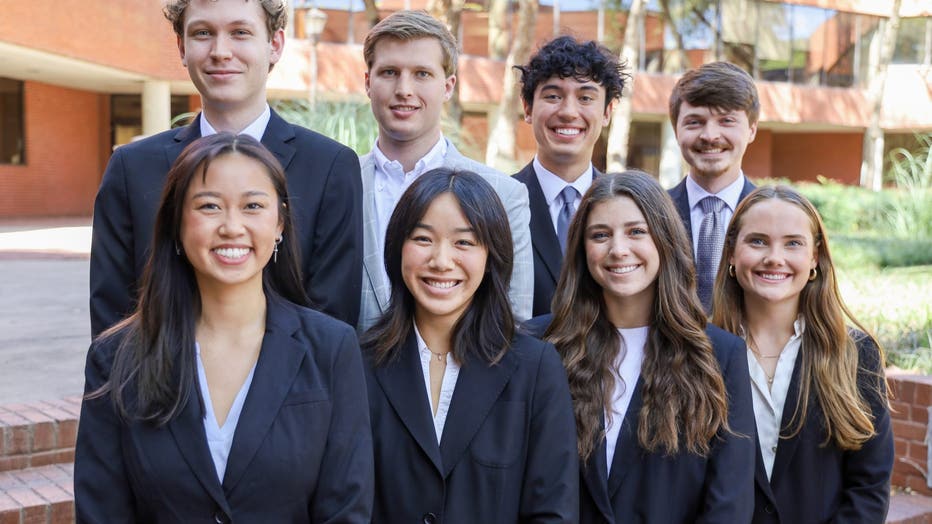Georgia Tech students revolutionize food distribution for local nonprofit
Georgia Tech students help nonprofit
A group of eight Georgia Tech students used skills learned in the classroom to help transform the way a local nonprofit feeds people. Neighborhood Cooperative Ministries in Norcross says it can now take in more donations and feed more people.
GWINNETT COUNTY, Ga. - A group of eight Georgia Tech students used their capstone project to help transform the way a local nonprofit feeds people.
Ryan Jones, executive director of Norcross nonprofit Neighborhood Cooperative Ministries (NCM), says the growing need for food in Gwinnett County was putting a strain on their resources.
"We served 27,000 individuals last year and we’ll serve about 6,000 more this year than we did last year," Jones said.
He says when you are a nonprofit, you have to come up with creative solutions to expensive problems.
"So, we heard about the Georgia Tech capstone project, and it was just the absolute perfect solution for our issues with our food program," Jones said.
"It's not every day that a smaller nonprofit organization in the Atlanta area has access to Georgia Tech resources or gets to work with students at Georgia Tech," said Julia Flake.

(Courtesy: Georgia Tech)
She is one of the eight students in Georgia Tech’s Industrial and Systems Engineering program who took on NCM’s logistical issues as their capstone project.
She says getting certain foods from the Atlanta Community Food Bank can be competitive, meaning NCM had to rely on more expensive store-bought food.
So, the students created and coded a notification system that sends alerts to the staff’s phones when the Food Bank has items they need.
"So that way, NCM employees can quickly log on, add that item to the cart and they're able to purchase greater pallets of food at a much cheaper rate than at retail cost," Flake said.
They also did an analysis and redesign of NCM’s warehouse to make it much more space efficient.
"Optimizing their warehouse to be able to go from storing 33 to 56 pallet spaces so they could store more pallets coming from the Atlanta Community Food Bank," Flake said.
"Where we can take in more food and say yes to more donations," Jones said.
They also made a new online point system for clients of NCM so they can get fresher food more often, instead of only visiting the pantry once a month.

(Courtesy: Georgia Tech)
All these changes Flake says are having a big impact.
"We quantified the amount of clients, additional clients that they would be able to serve monthly to around 566 additional clients monthly, which doubles the amount of people that they are able to serve below the poverty line in their service area," Flake said.
A godsend for this nonprofit who needed expert optimization.
"We often don't have the time or sometimes the skill sets that they brought. And they've saved us a ton of money and that's saved us a ton of time. And they've left us in a situation where we're able to distribute a great deal more food for a much cheaper cost as well," Jones said.
It is a real-world application with real world implications for these students’ skills.
"We saw that we're helping real people in our community. We can truly make a positive impact here, we can truly implement something that can truly make a difference," Flake said.
Jones says he hopes when people see how these students used engineering skills to help them out that they understand nonprofits like his could use help from people with practically any skill set.
The Source: This article is based on original reporting by FOX 5's Eric Mock.

